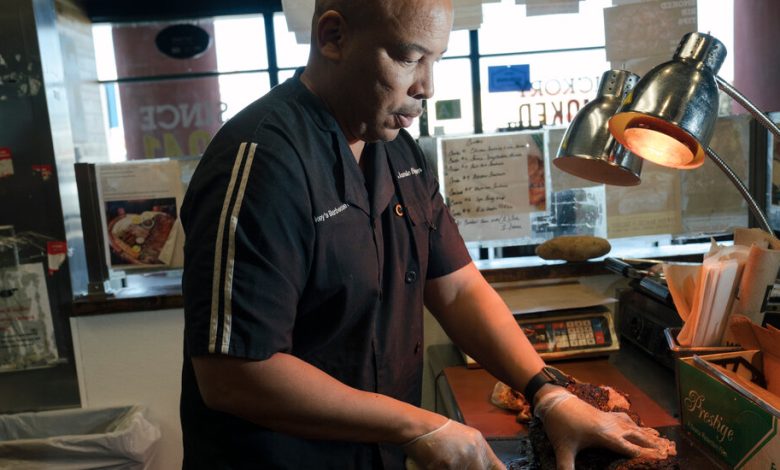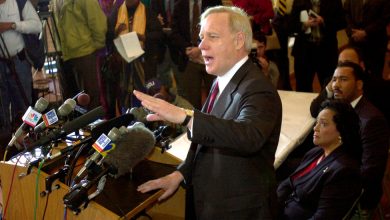‘Winners and Losers’ as $20 Fast-Food Wage Nears in California

A decade ago, Jamie Bynum poured his life savings into a barbecue restaurant now tucked between a Thai eatery and a nutrition store in a Southern California strip mall.
As a franchise owner of a Dickey’s Barbecue Pit, Mr. Bynum is pridefully particular about the details of his establishment — the size of the hickory wood pile on display near the entrance, the positioning of paper towel rolls on each table, the careful calibration it takes to keep his restaurant staffed 10 hours a day with a small crew.
The staffing, he said, has become harder in recent years, as the state’s minimum wage has steadily increased since 2017, often rising by a dollar per year. Today, it’s $16 an hour.
But on Monday, it will jump to $20 an hour for most fast-food workers in California, propelling them to the top of what minimum-wage earners make anywhere in the country. (Only Tukwila, Wash., a small city outside Seattle, sets the bar higher, with a minimum wage of $20.29 for many employees.)
The ambitious law, which supporters hope to see replicated nationwide, has been characterized by opposing sides in stark terms. To backers, it is a step toward fair compensation for low-wage workers who faced significant risk during the pandemic. To opponents, it is a cataclysmic move that will raise food prices, lead to job losses and force some franchisees to consider closing.
“People don’t understand that when wages rise, so do the prices,” Mr. Bynum said.
Mr. Bynum has, in recent years, raised prices to try to maintain profit margins — and each time, he said, he has noticed a drop in customers. That, in turn, forced painful decisions about cutting staffing and trimming hours.



